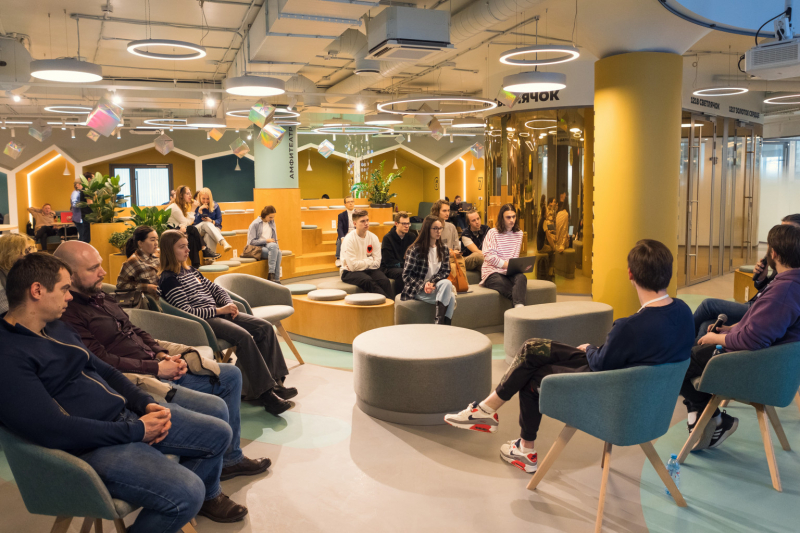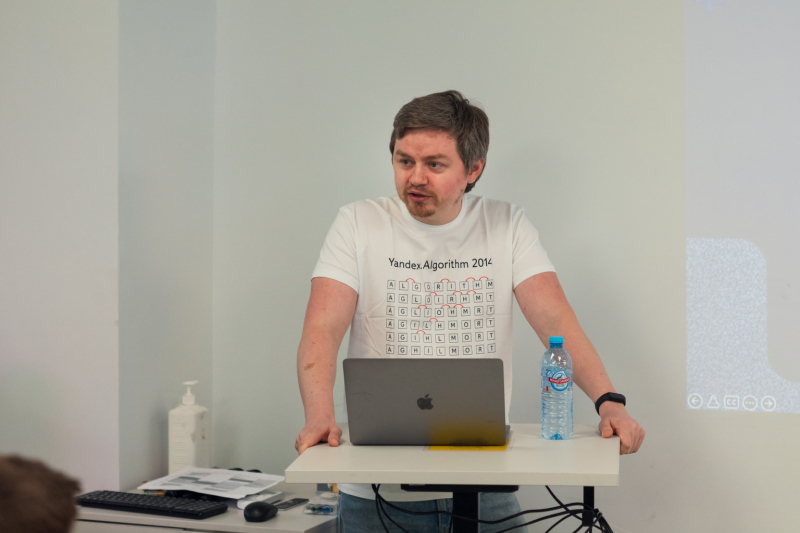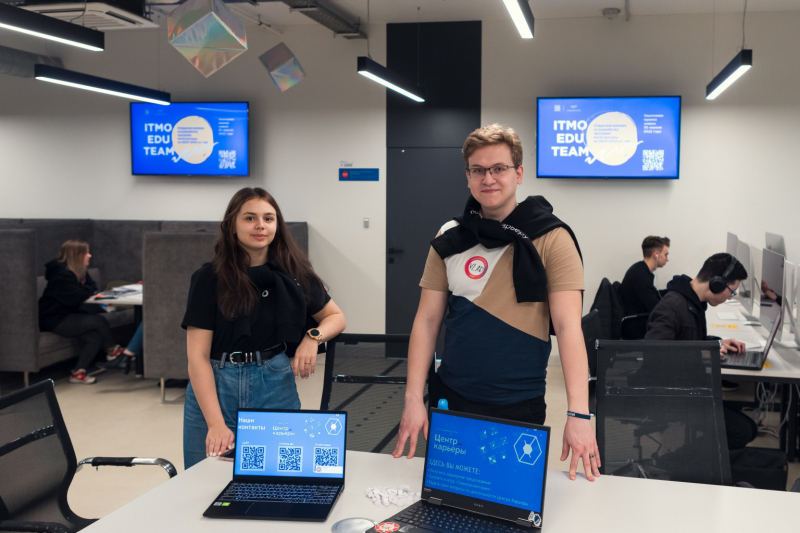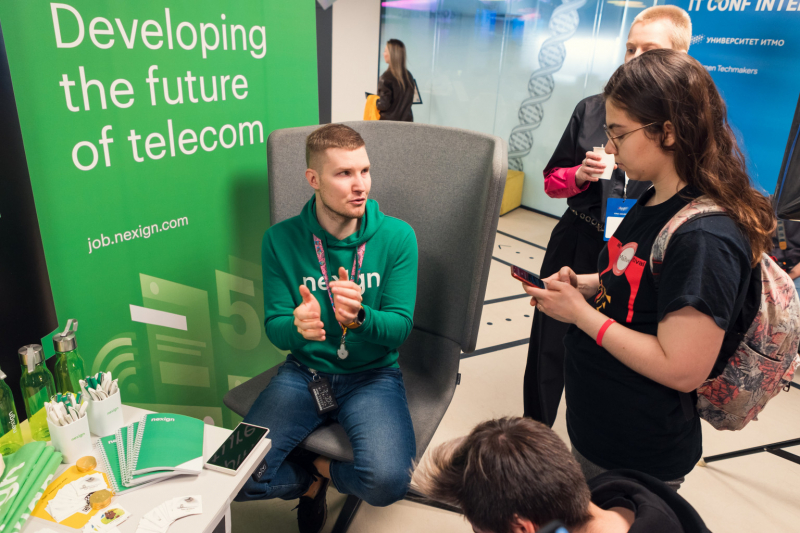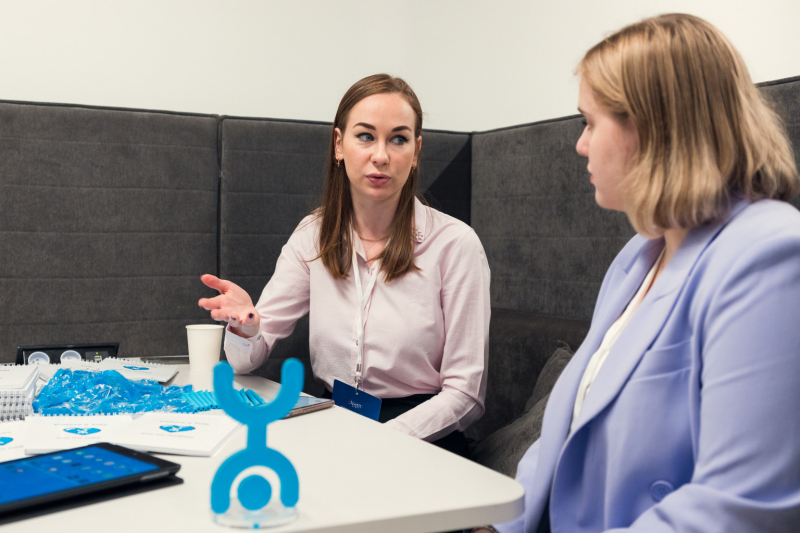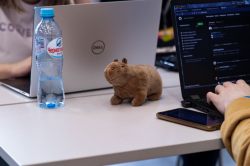During the first day of the conference, participants had the chance to visit presentations by guest speakers, attend career guiding consultations, and learn how to design their CVs from HR specialists of Yandex, Bank Saint Petersburg, Yota, Neoflex, Nexign, and PwC. Moreover, the attendees could apply for an internship and take an express interview, as well as update their CVs by taking a portrait picture in the specially-equipped photo zone.
However, it was lectures that were in the spotlight. In two days, over 30 speakers discussed a range of topics, from startups and machine learning to back- and frontend development. Among other key points were the importance of soft skills and tips for students on how to make a good impression at a job interview, network, and choose your path.
Soft skills for the win
Soft skills are the new black – in the modern world, you can’t build a successful career by only being a brilliant specialist, you should also learn how to work in a team and communicate with people. Teamwork, cooperation, and communication are key to rapid growth.
Therefore, it’s no wonder that lectures were the most attended section of the conference. Anastasia Zarechneva, an employee at Semrush internet marketing agency and an ambassador of the Women Techmakers community in St. Petersburg, opened the event with a lecture on networking. She shared how to make use of your communication networks so that cooperation would be mutually beneficial, where to look for like-minded people, how to offer help, and what to do if you consider yourself not worthy of people’s attention. Put shortly, Anastasia recommended not being afraid of posing questions and asking for help. Instead, trust yourself and others, realize your strong sides, and find a way to be useful for others. If it seems like you have no one to turn to, remember that you have friends and acquaintances, as well as former classmates and colleagues.
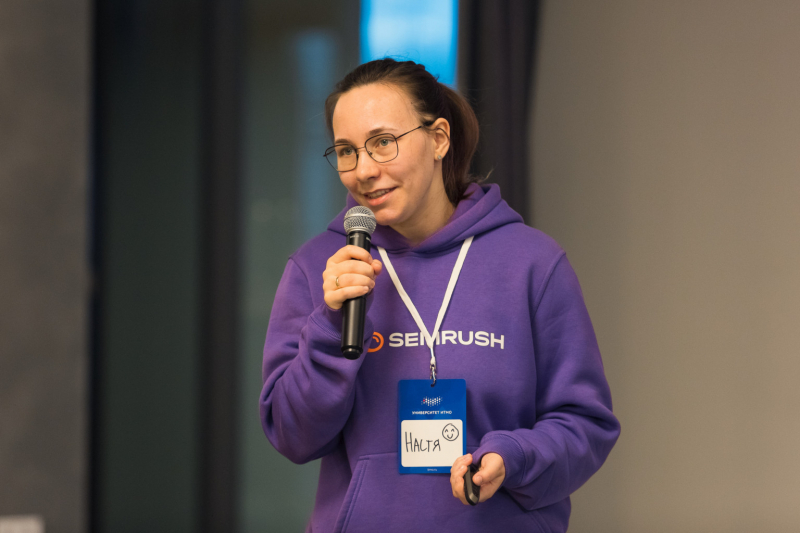
Anastasia Zarechneva. Credit: Dmitry Grigoryev, ITMO.NEWS.
Women in IT
Svetlana Markova, the head consultant at Neoflex, and Ksenia Cherepenina, the head of HR and growth team at Nexign, discussed the place of women in the IT industry. Both speakers built highly successful careers but it’s more of an exception than a rule: there aren’t that many women in IT and the number is even less when it comes to top management. According to Svetlana and Ksenia, it’s not about external conditions but the psychology of women, who tend to agree on smaller salaries than men, rarely ask for a raise, and don’t consider themselves worthy of being team leaders. These factors can be eliminated on a personal level by improving one’s self-esteem.
Andrei Breslav, an architect of Kotlin programming language and a co-founder of Alter, agreed with these statements and highlighted that there are no natural reasons for women to be less successful at programming, it’s all about culture – the problem lies in our society and school education. When facing the first challenges, girls tend to consider themselves not capable of performing such tasks. At the same time, having a small percentage of women in IT (according to research, they make up around 30% of employees) harms everyone – both women who hesitate to dive into this field and companies with a lack of human resources.
Can women turn this problem into an advantage? Natalya Isaeva, the head of Develop Relations at a major international bank, believes that they can. Women are able to stand out by breaking the stereotypes: for example, Natalya remembered her student years, when she was basically the only girl studying cybersecurity, which helped her stand out among other students.
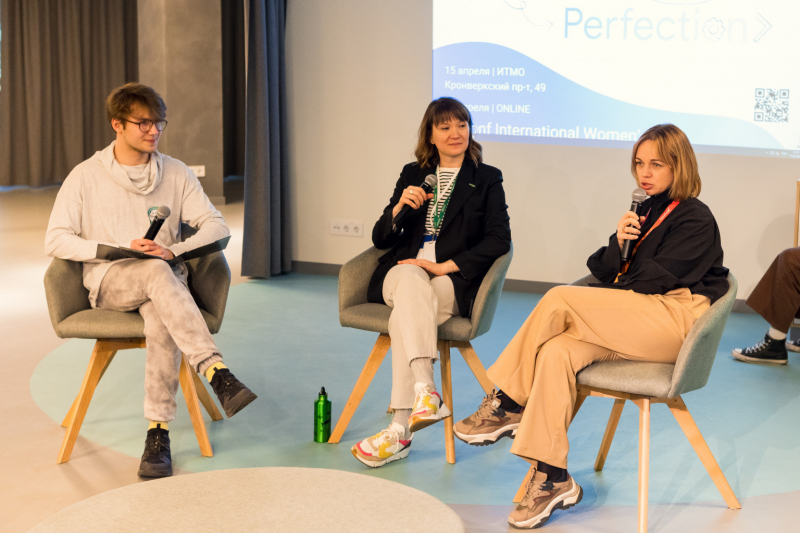
Ksenia Cherepenina (in the center) and Svetlana Markova (on the right). Credit: Dmitry Grigoryev, ITMO.NEWS.
Hard skills and abstract thinking
Practical tips and insider info from IT experts – that’s what probably drew most students to attend the conference. How do you go from junior to middle developer? How do you make an interview at Yandex go well? How can you join a big company if you’re a student or a fresh graduate?
A team of specialists from major Russian IT companies gave answers to these and other questions. Ekaterina Bateeva, an iOS engineer at Avito, discussed relevant development tools for mobile apps, including those required for joining the AvitoTech team. In her turn, Alisa Tsvetkova, the founder of ITGIRLS programming school for women, showed how mobile development platform Flutter works and shared how to excel at it quickly. Dmitry Perets, a machine learning specialist at Yota, talked about problems and tasks solved by a mobile operator’s data analytics and how machine learning helps detect fraudsters.
Vladimir Maksimuk, a developer at Selectel, and Sergey Vladimirov, a leading developer at Yandex, shared which programming languages are especially relevant today, while Alexey Lubenets, a Java developer at Yota, shared tips on how to quickly become a middle developer and what skills are required for that.
Oleg Mokhov, the head of the HR technologies department at Yandex, shared how job interviews work in this company. The easiest way to join Yandex is to wait for a fast track – an event launched by the company that allows you to undergo several stages of interviews in a day. It’s kind of like a hackathon: candidates solve three tasks, each more difficult than the previous one, and the program checks how well they did. With such an approach, it’s important to not only be skilled at programming, but also be able to think abstractly, as during the competition, participants can’t launch and check their algorithms.
ITMO startups
Technological startups also got a mention – graduates of ITMO University were invited to share their experience and success stories. Among them was Alexander Golovatyi, the founder of WeGoTrip traveling service, who talked about reaching the international market. Meanwhile, Greg Tkachenko, the co-founder of AI Factory startup bought by the American company Snap for $166 million, shared advice on how to find an idea for a great startup, which skills will come in handy if you want to build an efficient business, and how to avoid burnout.
Ksenia Buraya, a PhD student at ITMO University and a machine learning specialist at Yandex.Maps, presented her own project – digital makeup based on AI technologies. And Daria Yakovleva, a co-founder of MetaLabs cryptoproject, discussed the world of digital art, NFT, and cryptocurrency exchange platforms.
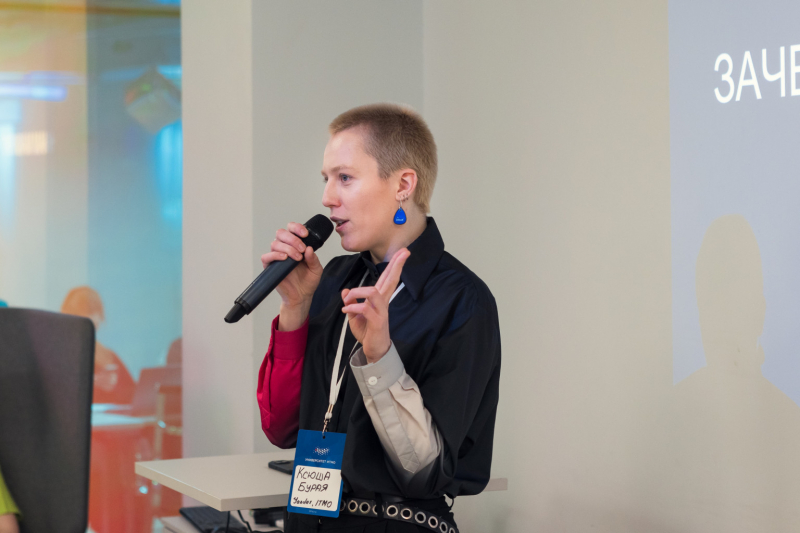
Ksenia Buraya. Credit: Dmitry Grigoryev, ITMO.NEWS.
“One of the main goals of the conference was to create a platform for the exchange of experience and ideas between professionals, junior specialists, and business representatives. In our world, breakthrough projects are created at the intersection of different fields and subject areas, so it’s crucial to maintain a network.
Therefore, it’s especially great to have students propose topics for discussions, and our graduates and partners helped form a great lineup of speakers. That’s the power of networking!” says Lyudmila Tsoi, a manager at the Creative and Corporate Projects Planning Center and an organizer of IT Conf International Women’s Day at ITMO University.
Recordings of talks are available on the conference’s website, YouTube, and VK page (in Russian).
